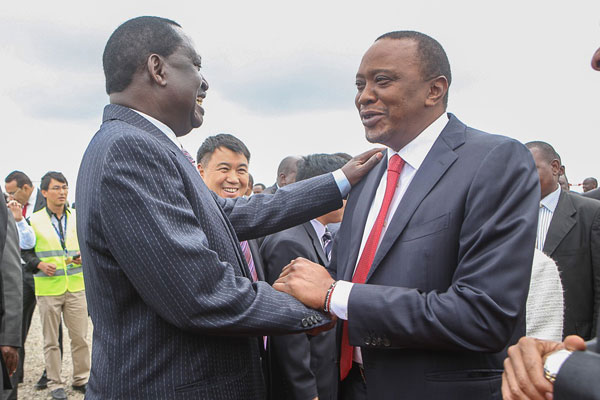If local and international observers are right, Kenya has just staged one of the fairest and most transparent elections in its history, as well as in the recent history of Africa. On Aug. 8, some 15 million voters went to the polls to elect 1,882 officials, including the president; on Friday, the independent electoral commission announced that incumbent Uhuru Kenyatta was reelected with slightly more than 54 percent of the vote. Electoral observers from the African Union, European Union and Carter Center praised the electoral commission’s work, and a local observation group that dispatched more than 8,000 monitors to the polls said its tallies from polling stations were consistent with the official results.
Kenya has nevertheless been teetering on the brink of crisis, largely because Kenyatta’s opponent, Raila Odinga, refuses to accept the results or even the established legal process for challenging them. Instead, Odinga has been leveling charges of fraud without offering any evidence to support them and encouraging his supporters to take to the streets. Over the weekend many of them did so in Nairobi and other cities, triggering a violent response by security forces, who reportedly fired on crowds with live ammunition.
On Monday there were signs of returning stability. But maintaining political peace in Kenya, and its status as an emerging democracy and attraction for foreign investors, will require the government and opposition to act responsibly and with restraint in the coming days.
Odinga has some cause for grievance. At 72, Odinga has now been defeated in four presidential elections. His loss in 2007 featured significant irregularities and led to violence in which more than 1,000 people died; in 2013, his appeals were rejected by the Supreme Court. This year’s election had one particularly sinister twist: the murder days before the election of an official responsible for the electronic voting system.
Nevertheless, election observers said they saw no sign of irregularities in last week’s vote. A paper trail of tallies from individual voting stations, confirmed by party representatives, provides a solid basis for confirming the official result. Odinga’s claim that a hacker somehow changed the result electronically can be authoritatively checked. The proper place for his complaints is not the streets but the courts.
The human rights commission rightly underlined the need for the electoral commission to make the paper tally forms public on its website. It also found that security forces had used excessive force and that Kenyan media had “exercised self-censorship.” It is up to Kenyatta, who has been urging citizens to remain peaceful, to stop the excesses of police as well as the apparent pressure being applied to media and nongovernmental organizations. The killing of the election official should be thoroughly investigated and the perpetrators brought to justice. Kenyatta appears to have fairly won a democratic mandate; he should not tarnish it with repression.
Editorial by The Washington Post
Copy the Story LinkSend questions/comments to the editors.



Success. Please wait for the page to reload. If the page does not reload within 5 seconds, please refresh the page.
Enter your email and password to access comments.
Hi, to comment on stories you must . This profile is in addition to your subscription and website login.
Already have a commenting profile? .
Invalid username/password.
Please check your email to confirm and complete your registration.
Only subscribers are eligible to post comments. Please subscribe or login first for digital access. Here’s why.
Use the form below to reset your password. When you've submitted your account email, we will send an email with a reset code.